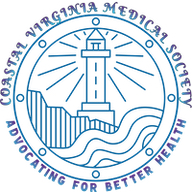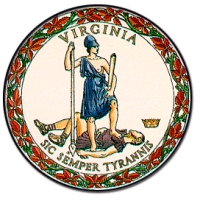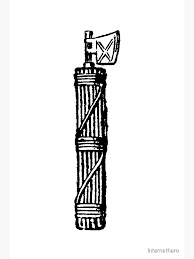And Surgeons
Virginia State Task Force:
COPN Laws

As many of you are aware, the MSV nominated two (2) physicians to serve on the State Health Services Plan Task Force meeting in Richmond for the purpose of advising our legislators on key healthcare issues in the commonwealth. One of several issues the Task Force has been asked to address is CON (Certificate of Need) or COPN (Certificate of Public Need) laws in Virginia. Dr. Thomas Eppes and I (Dr. Keith Berger, the second appointee) are about to attend our 3rd Richmond meeting on May 30th. The purpose of this upcoming meeting is to review all of what we know about COPN laws and their impact on healthcare costs, quality and accessibility.
To put it in a nutshell, Virginia is one of 34 states in the US that still has COPN regulations after the federal requirement for COPN was dropped in the mid 1970s. Without going into detail, COPN laws were originally established and ultimately required by the Federal Government with the intended purpose of containing healthcare costs by restricting the numbers of providers that could provide medical services, like outpatient surgeries, hospital beds, GI studies, CT and MRI scans etc. Unfortunately, after 10 years of complete failure to restrain costs, the Feds dropped the Federal mandate for COPN back in the mid seventies. Nonetheless, 34 states (including Virginia) retained COPN laws with the misrepresentation that COPN laws actually worked despite the evidence with multiple studies and experience to the contrary. The obvious explanation for this is that instead of lowering costs, increasing access and quality of services, and driving innovation with free competition, COPN laws in Virginia create hospital and ASC mini-monopolies, raise costs and may even lower quality. For example, if I do a colonoscopy on a Medicare patient in the outpatient department of the hospital, the hospital gets paid a facility fee of about $1200. Directly across the street, in my office, the same colonoscopy on the same patient would be about $400, but COPN law prevents me from recouping that fee without having a COPN approval from Richmond, essentially a ‘mother may I’ excuse from the hospital allowing me to compete with them. The process to obtain a COPN in VA can cost upwards of $250K, not something I’m prepared or able to pay and is a very arduous and complicated project. The unhappy alternative is that my office absorbs the facility costs making colonoscopies in my office unaffordable. This is what I’ve been forced into for over 30 years. This year, for the first time, I am having to restrict my Medicare practice in order for the practice to remain solvent. All of this despite the fact that Medicare rates my practice as one of the most cost efficient GI practices for Medicare colonoscopies in the state; and it was our original practice that was the first GI practice in the state of Virginia to start doing GI procedures in the office setting rather that the exorbitantly costly hospital OPD. Every year, COPN regulations cost taxpayers and Medicare billions of healthcare dollars and in part explains why you can’t get a screening colonoscopy for 3-4 months in Tidewater. When my brother-in-law needed a simple hernia repair, we had to take him to an ASC in Maryland (where there is no COPN law) where his surgery cost around $2200 instead of in Virginia which was double or triple the cost. The impact these COPN restrictions have on healthcare costs and availability are obvious, but we will see no change until our legislators stop supporting hospital monopolies and acting on the behalf of citizens and accessible healthcare in this state. Dr. Eppes and I hope to make a difference on this committee by sending back to our legislators the recommendation that the requirement for COPN be dropped for most healthcare services now under COPN statute. Countless studies on the subject of COPN support this view, and although (for now) in Virginia physicians don’t have the financial backing or legislative influence of the hospitals, one thing we still have is our voice and we intend on changing the status quo!
I encourage you to educate yourself on COPN law in Virginia and stand with us in this critical initiative. I highly recommend reading the former FTC’s chairperson’s talk for 2015 (Maureen Olhausen). She was at the FTC under both Trump and Obama and explains the importance of COPN in a great way. I’m attaching her talk as the pdf file “Certificate of Need Law: A Prescription for Higher Costs.
A victory for consumers and healthcare providers with COPN would be a boost for freedom in healthcare in Virginia and is long overdue. Many states have done this already (including South Carolina last year) so it is NOT impossible. It only requires reasonable, common sense thinking by our lawmakers, and attention to the proven FACTS that COPN laws (1) increase health costs, and (2) actually cause harm to patients by decreasing access to care.
$2200 instead of in Virginia which was double or triple the cost. The impact these COPN restrictions have on healthcare costs and availability are obvious, but we will see no change until our legislators stop supporting hospital monopolies and acting on the behalf of citizens and accessible healthcare in this state. Dr. Eppes and I hope to make a difference on this committee by sending back to our legislators the recommendation that the requirement for COPN be dropped for most healthcare services now under COPN statute. Countless studies on the subject of COPN support this view, and although (for now) in Virginia physicians don’t have the financial backing or legislative influence of the hospitals, one thing we still have is our voice and we intend on changing the status quo!
I encourage you to educate yourself on COPN law in Virginia and stand with us in this critical initiative. I highly recommend reading the former FTC’s chairperson’s talk for 2015 (Maureen Olhausen). She was at the FTC under both Trump and Obama and explains the importance of COPN in a great way. I’m attaching her talk as the pdf file “Certificate of Need Law: A Prescription for Higher Costs.
A victory for consumers and healthcare providers with COPN would be a boost for freedom in healthcare in Virginia and is long overdue. Many states have done this already (including South Carolina last year) so it is NOT impossible. It only requires reasonable, common sense thinking by our lawmakers, and attention to the proven FACTS that COPN laws (1) increase health costs, and (2) actually cause harm to patients by decreasing access to care.
Your Comments
Please add your comments or suggestions on any past or future events in the box below.
Newsletter
Stay up to date on issues and news you need to know. The CVMS Bulletin is published monthly and will list concerns that local physicians have expressed about healthcare in Coastal Virginia and how we can make it better. We will provide potential solutions and let you know what is happening behind the scenes to help solve these problems. Membership is not currently required to receive the newsletter.
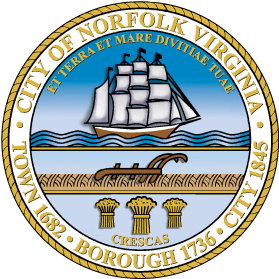
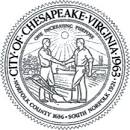
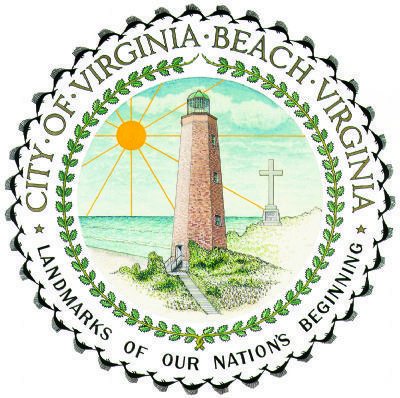
Recent Articles
-
CVMS-Bulletin-November-2025
Nov 28, 25 08:23 AM
CVMS Newsletter - Medical News and Commentary -
CVMS Membership Drive 2025
Oct 16, 25 10:53 AM
Information about the membership importance and benefits. -
Letter to Governor Youngkin re: COVID-19 Vaccine Recommendations
Oct 16, 25 10:45 AM
The Honorable Glenn Youngkin
Office of the Governor
P.O. Box 1475
Richmond, VA 23218
Dear Governor Youngkin,
On behalf of the Coastal Virginia Medical Society (CVMS), based in the Hampton Roads area of Sou…
Sign Up for the New CVMS Bulletin
Things You Need to Know
News Releases
from the
Virginia Beach Health Department
Norfolk Public Health Department
Chesapeake Health Department
The Roman Fasces was a symbol of strength and power occurring as a result of many binding together. It was made of multiple elm or birchwood rods about 5 feet long tied together and sometimes including an axe. It was carried by attendants to soldiers or powerful figures in ancient Rome. For us, it symbolizes that we are stronger and more powerful if we bind together in supporting our goals.
